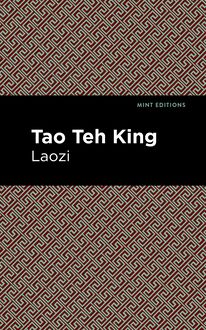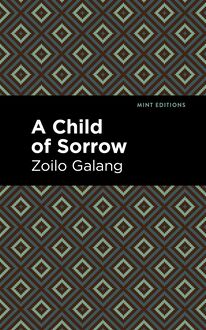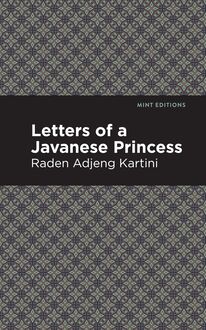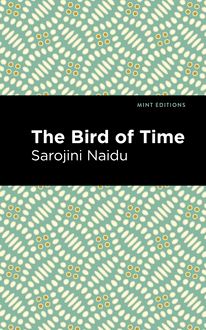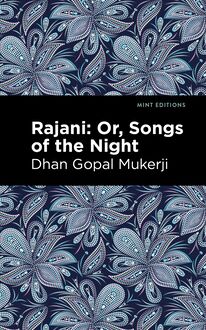-
 Univers
Univers
-
 Ebooks
Ebooks
-
 Livres audio
Livres audio
-
 Presse
Presse
-
 Podcasts
Podcasts
-
 BD
BD
-
 Documents
Documents
-
- Cours
- Révisions
- Ressources pédagogiques
- Sciences de l’éducation
- Manuels scolaires
- Langues
- Travaux de classe
- Annales de BEP
- Etudes supérieures
- Maternelle et primaire
- Fiches de lecture
- Orientation scolaire
- Méthodologie
- Corrigés de devoir
- Annales d’examens et concours
- Annales du bac
- Annales du brevet
- Rapports de stage
La lecture à portée de main
Vous pourrez modifier la taille du texte de cet ouvrage
Découvre YouScribe en t'inscrivant gratuitement
Je m'inscrisDécouvre YouScribe en t'inscrivant gratuitement
Je m'inscrisEn savoir plus
Vous pourrez modifier la taille du texte de cet ouvrage
En savoir plus

Description
Chandra Shekhar (1875) is a novel by Bankim Chandra Chatterjee. Recognized as a pioneering work of Bengali literature with universal romantic themes, Chandra Shekhar is a story that engages with the subjects of marriage, suicide, and heredity in Hindu culture. “On the bank of the Ganges, there was seated a boy under the green mantles of the mango groves, enjoying the evening melody of the flowing Bhagirathi. Under his feet lay, on the green bed of grass, a little girl, casting upon his face her lingering glances—silent and motionless.” Along the banks of the sacred river, two star-crossed lovers count the boats as they pass. Although they love one another, Pratap and Shaibalini cannot marry—they are distant relatives, and such a match is forbidden. Distraught, Pratap proposes they commit suicide together by slipping into the slow, silent water, disappearing in a marriage of death. As his head goes under, Shaibalini begins to have doubts, surfacing just in time to see the gallant Chandra Shekhar dive in to save Pratap. Unaware of his intentions, the older man makes sure the younger is alright, then sets his sights on the lovely Shaibalini. Tragic and timeless, Chandra Shekhar is a brilliant romance from a legendary figure in Bengali literature. With a beautifully designed cover and professionally typeset manuscript, this edition of Bankim Chandra Chatterjee’s Chandra Shekhar is a classic of Bengali literature and utopian science fiction reimagined for modern readers.
Sujets
Informations
| Publié par | Mint Editions |
| Date de parution | 08 juin 2021 |
| Nombre de lectures | 0 |
| EAN13 | 9781513224015 |
| Langue | English |
| Poids de l'ouvrage | 2 Mo |
Informations légales : prix de location à la page 0,0500€. Cette information est donnée uniquement à titre indicatif conformément à la législation en vigueur.
Extrait
Chandra Shekhar
Bankim Chandra Chatterjee
Chandra Shekhar was first published in 1877.
This edition published by Mint Editions 2021.
ISBN 9781513299396 | E-ISBN 9781513224015
Published by Mint Editions®
minteditionbooks.com
Publishing Director: Jennifer Newens
Design & Production: Rachel Lopez Metzger
Project Manager: Micaela Clark
Translated By: Manmatha Nath Ray Chowdhury
Typesetting: Westchester Publishing Services
C ONTENTS I NTRODUCTION I. T HE B OY AND THE G IRL II. T HE D ROWNED AND THE R UNAWAY III. A B RIDEGROOM AT L AST P ART I. T HE S INNER I. D ALANI B EGUM II. T HE B HIMA T ANK III. L AWRENCE F OSTER IV. T HE B ARBER W OMAN V. C HANDRA S HEKHAR ’ S R ETURN P ART II. T HE S IN I. K ULSAM II. G URGAN K HAN III. W HAT H APPENED TO D ALANI IV. P RATAP V. O N THE B ANK OF THE G ANGES VI. T HE T HUNDERBOLT VII. G OLSTON AND J OHNSON VIII. T HE S TRANGE W AYS OF S IN P ART III. T HE T OUCH OF V IRTUE I. R AMANANDA S WAMI II. T HE N EW A CQUAINTANCE III. T HE N EW H OBBY IV. S HE W EEPS V. S HE L AUGHS VI. A LONG D EEP W ATERS VII. R AMCHARAN R ELEASED VIII. O N THE H ILLS P ART IV. T HE P ENANCE I. W HAT P RATAP D ID II. W HAT S HAIBALINI D ID III. T HE W IND OF V IRTUE B LEW IV. T HE W RECK OF S IN P ART V. T HE V EIL I. T HE F ATE OF A MYATT II. T HE S TALWART M AN A GAIN III. T HE D ANCE IV. W HAT D ALANI D ID P ART VI. T HE C ONSUMMATION I. T HE U NTOLD S TORY II. T HE F ATAL O RDER III. T HE E MPEROR AND HIS W EALTH IV. J OHN S TALKART V. T O B EDAGRAM A GAIN VI. S PIRITUAL OR P SYCHIC F ORCE VII. I N THE D URBAR VIII. I N THE F IELD OF B ATTLE
INTRODUCTION
I
T HE B OY AND THE G IRL
O n the bank of the Ganges, there was seated a boy under the green mantles of the mango groves, enjoying the evening melody of the flowing Bhagirathi . Under his feet lay, on the green bed of grass, a little girl, casting upon his face her lingering glances—silent and motionless. She was gazing untiringly, and turning for a while her eyes towards the sky overhead, the river below, and the trees around, again fixed them upon that face. The name of the boy was P RATAP —that of the girl, S HAIBALINI . Shaibalini was then only a girl of seven or eight— Pratap had scarcely stepped into youth.
Overhead, the Papia , in its airy flight, filled the sky with waves of music and smoothly glided off. Shaibalini , in imitation, began to thrill, with her whistles, the mango groves that adorned the bank of the Ganges. The murmuring melody of the river mingled with that mock music in perfect harmony.
The girl with her little soft hand plucked some equally soft wild flowers, and making with them a garland, embellished the boy with it. Taking it off, she coiled it round her own braid and again put it on the neck of the boy. She could not decide which of them should wear it. At last she got over the difficulty by throwing it round the horns of a plump, nice-looking cow grazing near by. So it happened with them often. Sometimes the boy, in return for the garland, used to bring down for her from the nest of birds their little ones, and in mango season he would give her sweet mangoes ripe for relish.
When the stars appeared in the serene sky of the evening, they began to count them. “Who has seen first?” “Which has first appeared?” “How many do you see?”—“Only four? I see five. There is one, there is another, again there is one, again there is another and lastly mark that.” It is a lie. Shaibalini does not see more than three.
“Let us count the boats. Can you say how many boats are passing?”—“Only sixteen? Let us bet, I say there are eighteen.” Shaibalini did not know to count. Once counting she found nine—counting again she came up to twenty-one. Turning from this, they next fixed their eyes upon a particular boat. “Who is in that boat—whence it came—whither it goes? How glittering is the gold in the waters on the oars!”
II
T HE D ROWNED AND THE R UNAWAY
I n this way love’s first seed was sown in them. Call it love or give it any other name, it matters not. Only sixteen springs have smiled upon our hero and our heroine is a tiny girl of eight! But no love is so sweet as that which springs from tender hearts.
Early love, it seems, has a curse upon it. How many of those whom you loved in your younger days, you meet in your youth? How many do live to see your youthful days? How many, again, still deserve your love? In old age nothing but the recollection of early love lingers in our memory. But how sweet is that recollection! Every boy, without exception, feels, sometime or other, that yonder girl has an exceptionally sweet face, and that her eyes have some unspeakable charms in them. How often he turns away from his play and looks at her face—how often he lies in wait, in her way, to steal a glance at her. He is never conscious of the feeling, but nevertheless he loves her. Later on, that sweet face and that simple glance are carried away by the current of time—he goes about the world for her, but finds nothing but recollection! Early love, it seems, is cursed.
Shaibalini thought she would be married to Pratap . But Pratap knew, it was not to be. Shaibalini was the daughter of one of Pratap’s kindreds. The relation was, no doubt, distant, but still they had the same blood in them. This was Shaibalini’s first mistake.
Shaibalini was a poor man’s daughter. She had none but her mother. They had nothing but a cottage and Shaibalini’s immense beauty. Pratap too was very poor.
Shaibalini was growing in years. Her beauty was every day increasing like the new moon, till she reached the height of her glory; but she could not be married. Marriage meant expense, and who would bear it? Who would discover, and pick up, as priceless, that beauty in that wilderness?
Gradually with her years, Shaibalini grew wiser. She felt that without Pratap there was no happiness in this world. She realised that she had no chance of getting Pratap in this life as her husband.
Pratap and Saibalini began to consult with each other. They consulted for many days. But none else could know of it, as they did everything in secret. When they came to a decision, they went together for a bath in the Ganges. Many had been swimming in the river then. Pratap said, “Come Shaibalini , let us swim.” They began to swim. Both of them were experts in that art—no one in the village could swim so well as they. It was the rainy season, and the river was full and swollen to the very edge of its banks. Its waters were waving, dancing, and running with mad enthusiasm. They proceeded through that vast sheet of water, tearing its surface, stirring its bosom, and throwing its particles up in the air. In the floating circles of silvery foams, the beautiful young couple looked like a pair of bright jewels set in a silver ring.
When they had gone far away, the people at the Ghat shouted and asked them to come back. They would not listen, and proceeded on. Again the people shouted—they called them—they reproached them—they rebuked them, but neither of them would listen—they proceeded on and on. At last they came to a great distance; Pratap then cried, “ Shaibalini , this is our marriage.” “No further—let this be the place,” responded Shaibalini readily, with warmth.
Pratap sank into the water to drown himself. Shaibalini did not. Fear came upon her at that moment. She thought within herself, “Why should I die? What is Pratap to me? I fear death—my heart fails—I cannot court it.” Shaibalini turned back, and swam up to the land.
III
A B RIDEGROOM AT L AST
A boat was passing close to the spot where Pratap sank to drown himself. Some one in the boat saw Pratap going down, and jumped into the water to his rescue. The man in the boat was Chandra Shekhar Sharma .
Chandra Shekhar taking hold of Pratap , swam back to the boat, and got him on it. He took his boat to the Ghat , landed with Pratap , and took him to his house. Chandra Shekhar was detained there by Pratap’s mother. She fell at his feet and prevailed on him to be her guest that day. Chandra Shekhar , however, remained ignorant of the secrets of Pratap’s attempt at suicide.
Shaibalini could not think of appearing before Pratap again. But Chandra Shekhar saw her and was charmed. Chandra Shekhar was not in easy circumstances at the time. He had passed his thirty-second year. He had domestic concerns but had no attraction for this world. He was still a bachelor, and knowing the changes that marriage brings in to be unfavourable to the acquisition of knowledge, he looked upon it with indifference. But lately, a little over a year, his mother had died, and he had already begun to feel that his bachelor life itself was a hinderance. In the first place, he had to cook his food himself, and that took away much of his time—hampered his studies, and his works as a teacher of youths. Secondly, he had a Shalgram in his house, whom he worshipped every day. Everything in that connection he had to do himself, and that again, required time. The services of the deity could not be performed without hitches. His household affairs suffered in consequence, yea, it happened sometimes that he could not even get his meals ready. He often missed his books and could not find them out. He often forgot where he kept his money or whom he paid. His income could not cover his expenses, although his wants were very few and small. Chandra Shekhar thought his condition would improve, in some respects, if he would marry.
But he resolved that if he would marry at all, he would not marry a beautiful girl; for his mind might become captivated by the charms of a beautiful wife. He would not be entangled in the networks of the world.
When Chandra Shekhar was in this mood of mind, he saw Shaibalini . The ascetic’s determination gave way before her beauty. After much reflection and some hesitation, he at last married Shaibalini , himself acting as a match-maker. Who is not captivated by the fascinating influence of beauty?
Our sto
-
 Univers
Univers
-
 Ebooks
Ebooks
-
 Livres audio
Livres audio
-
 Presse
Presse
-
 Podcasts
Podcasts
-
 BD
BD
-
 Documents
Documents
-
Jeunesse
-
Littérature
-
Ressources professionnelles
-
Santé et bien-être
-
Savoirs
-
Education
-
Loisirs et hobbies
-
Art, musique et cinéma
-
Actualité et débat de société
-
Jeunesse
-
Littérature
-
Ressources professionnelles
-
Santé et bien-être
-
Savoirs
-
Education
-
Loisirs et hobbies
-
Art, musique et cinéma
-
Actualité et débat de société
-
Actualités
-
Lifestyle
-
Presse jeunesse
-
Presse professionnelle
-
Pratique
-
Presse sportive
-
Presse internationale
-
Culture & Médias
-
Action et Aventures
-
Science-fiction et Fantasy
-
Société
-
Jeunesse
-
Littérature
-
Ressources professionnelles
-
Santé et bien-être
-
Savoirs
-
Education
-
Loisirs et hobbies
-
Art, musique et cinéma
-
Actualité et débat de société
- Cours
- Révisions
- Ressources pédagogiques
- Sciences de l’éducation
- Manuels scolaires
- Langues
- Travaux de classe
- Annales de BEP
- Etudes supérieures
- Maternelle et primaire
- Fiches de lecture
- Orientation scolaire
- Méthodologie
- Corrigés de devoir
- Annales d’examens et concours
- Annales du bac
- Annales du brevet
- Rapports de stage

